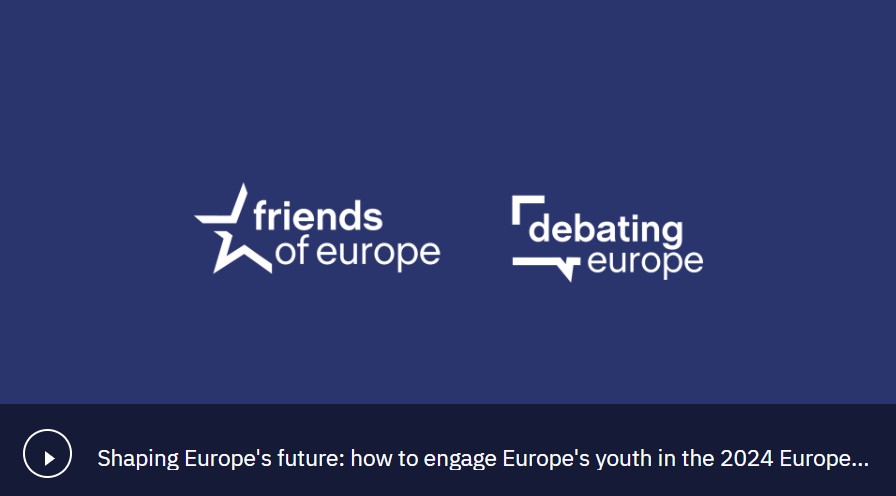Events
Shaping Europe’s future: how to engage Europe’s youth in the 2024 European Parliament elections?

The European Parliament elections on 6-9 June 2024 will be an important election for young people, with many 16- and 17-year-olds (from 5 of the 27 EU countries) voting for the first time. On July 6th, Debating Europe, the citizens engagement and democracy unit of Friends of Europe, hosted a panel debate on how to engage Europe’s youth ahead of the European elections. This event was an opportunity for a selection of campaign managers from the European Parliament political groups, citizens and representatives from civil society organisations to exchange on important issues of representation, engagement and the role of political parties to strengthen democracy. How will political groups motivate young people to vote, especially first-time voters? Can participatory and deliberative exercises regenerate representative democracies and influence election campaigns?
Participants from civil society welcomed the examples of young politicians and youth organisations but highlighted the need to reach out to young citizens who do not feel represented and who think their vote does not matter. Politicians emphasised the importance of inspiring youth, as well as engaging directly with them.
All panellists agreed, in principle, to lowering the voting age to 16 years in all EU countries and for all elections.
“Without the participation of young people, the EU has no future,” said Saar van Bueren, Deputy Secretary-General of the Party of European Socialists (PES), who also invited young people to change the system from within the current institutions.
According to Maïa de la Baume, Spokesperson and Press Director from the European People’s Party (EPP), local engagement and clear communication from the European institutions are key to bridge the gap between young people and politicians, as “low turnout in the European elections often affects young people”.
Didrik de Schaetzen, 2024 Campaign Director and Secretary-General ad interim of the Alliance of Liberals and Democrats for Europe (ALDE) Party, argued that there is youth engagement and that political parties “have to find ways to channel that engagement and transfer it into a vote”.
Cinta Gonzalez Sentis, Secretary-General of the Federation of Young European Greens (FYEG), reminded the audience that “the average age of a member of the European Parliament is 49.5 years. While 20% of the European population is composed of young people, only 6% of the members of the European Parliament are younger than 35”, highlighting the lack of representation. She pointed out the lack of flexibility in political party structures, which keeps young people from engaging in both local and European politics.
“The issue of representation is extremely important,” agreed David Lundy, Head of Communications of The Left in the European Parliament, adding that the group pushes for improvements on issues young people find the most urgent, such as climate change, working conditions, democracy and representation of marginalised groups.
You can also read about this event on Friends of Europe’s website.
PHOTO CREDIT: Phil Scroggs/Unsplash
![]()
Funded by the European Union. Views and opinions expressed are however those of the author(s) only and do not necessarily reflect those of the European Union or the European Commission. Neither the European Union nor the granting authority can be held responsible for them.
